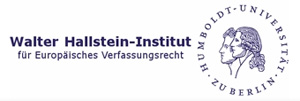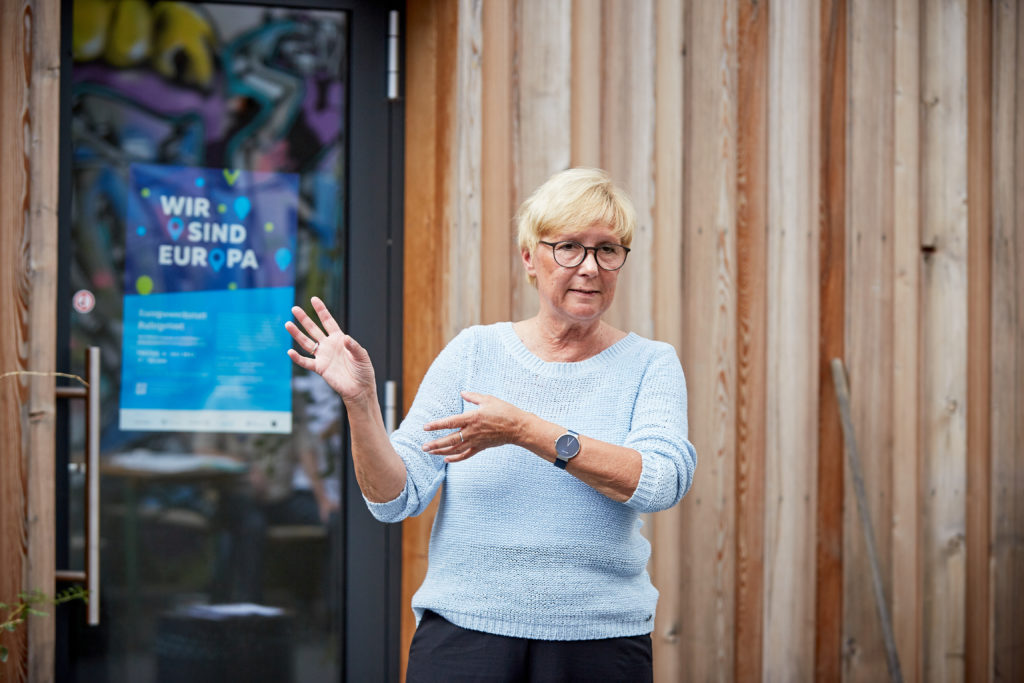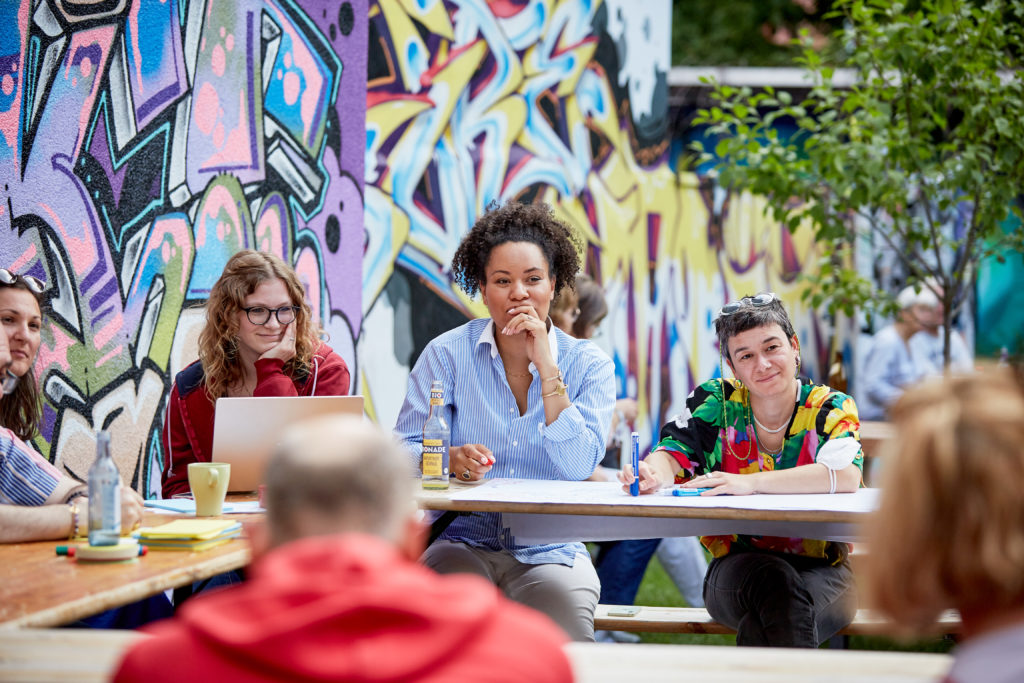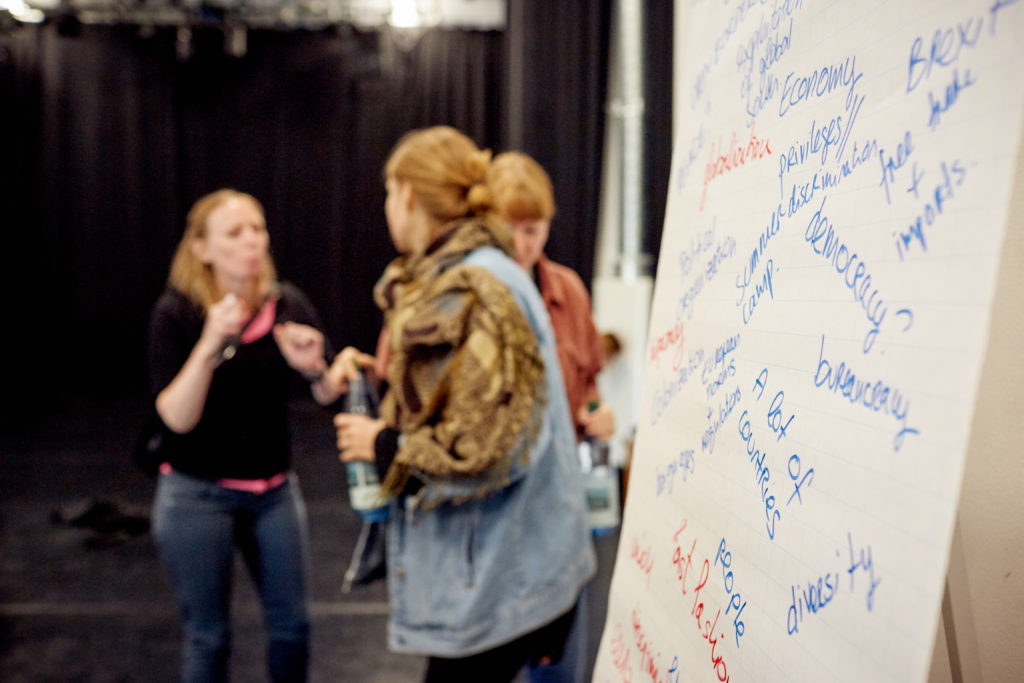Projects
In collaboration with other organisations and foundations, IJP offers various projects for alumni. The focus is on both professional development and network expansion – beyond the bilateral nature of the regular IJP programmes.
Projects include:
Current
September 4 – 6, 2025
ComLab #10 | live in Berlin
Living longer, living better – Sustainable innovation in healthcare, environmental research and technology
September 4 – 6, 2025
For the tenth time, IJP and the Alexander von Humboldt Foundation joined forces to bridge the gap between science and journalism.
Previous sessions
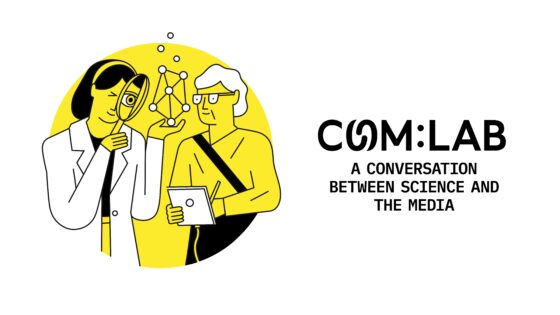
ComLab#10 Living longer, living better – Sustainable innovation in healthcare, environmental research and technology September 4 – 6, 2025
How can we live longer – and better? Exploring health, environment, urban planning, agriculture and AI, participants developed new ways to turn science into stories that inform and inspire.
↗ more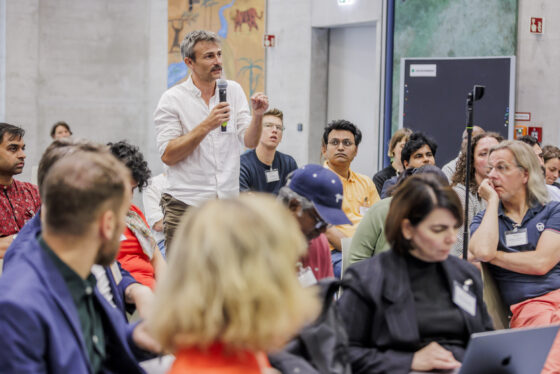
ComLab#9 Contested Freedom – from Migration to AI and the Climate Crisis September 19 – 22, 2024
ComLab #9 brought journalists and scientists together in an inspiring exchange of ideas and perspectives. Over the course of four days, these dedicated professionals formed science-media tandems, uniting their expertise to address some of the most pressing global challenges—migration, climate change, and AI.
↗ more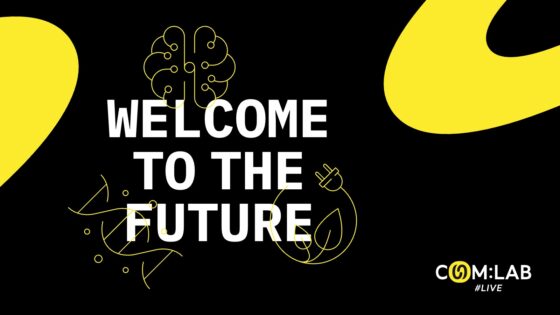
ComLab #8: Welcome to the Future live in Berlin 8. September 2023
What does science expect in 2023? With new space missions, forward-looking AI applications and developments in biotechnology, how can or should scientists and journalists report on the next “big bang”? How much newsworthiness should we ascribe to risky or early-stage research? Can too much attention at an early stage be detrimental to further development, especially in terms of public acceptance? At the same time, we want to discuss the underlying cultural norms in the application and perception of new research in different countries.
↗ more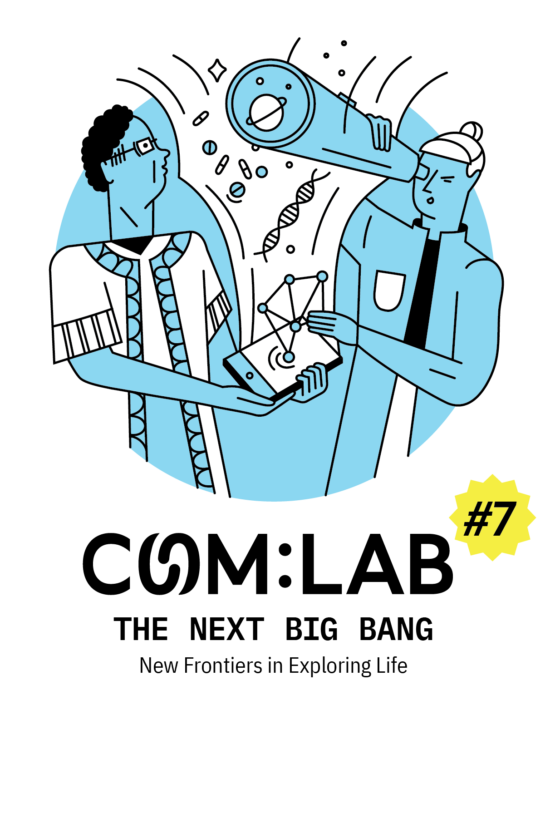
ComLab #7: The Next Big Bang New Frontiers in Exploring Life May 2023
The science year 2022 brought us ground-breaking news – from new AI-based approaches to drug production to spectacular insights into distant galaxies delivered by the James Webb Telescope. Science has always experimented at the boundaries of life, but how will new technologies shape our understanding of humans and our habitats in the future?
↗ more
ComLab #6: Dwindling Resources – Growing Conflicts New solutions in the fight against resource scarcity October / November 2022
Rising oil and grain prices, dwindling wood and water reserves: Current geopolitical developments and climate change are making it increasingly clear how dependent we are on stable resources and reliable trade routes. Resource scarcity has far-reaching economic, social and political consequences, the urgency of which is being debated and negotiated in the public and political arena.
↗ more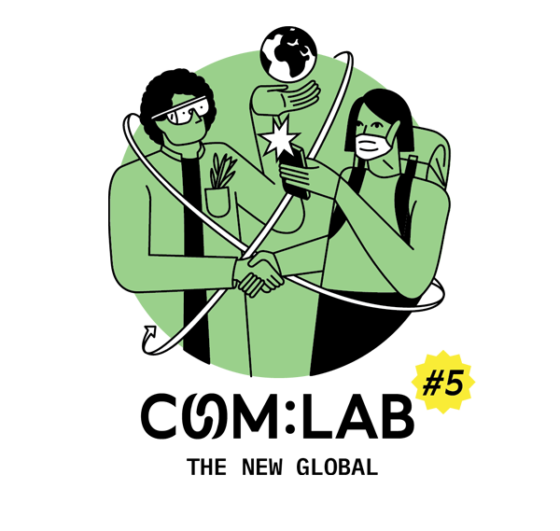
ComLab #5: The New Global Cooperation for the Future May 2022
Without sharing ideas, goods and common human values around the world, our lives would be much poorer and even endangered. The global movement of people, raw materials and innovations changed our lives for the better and continues to do so. Yet, the pandemic, political upheaval, and resource dependencies pose new challenges to the idea of a collaborative international community.
↗ more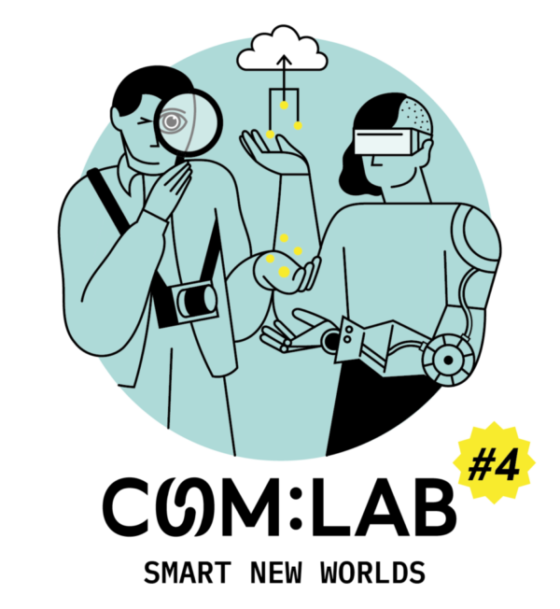
ComLab #4: Smart New Worlds How AI, Robotics and Digitalisation Transform Our Lives November 2021
Artificial intelligence, robotics and new digital technologies are changing our lives. To which extent, benefit or at which cost is often hard to grasp for regulators, civil society and media. While transformative technologies hold great potential in medicine, industry, logistics and urban planning, hardly any other scientific fields spark so much speculation.
↗ more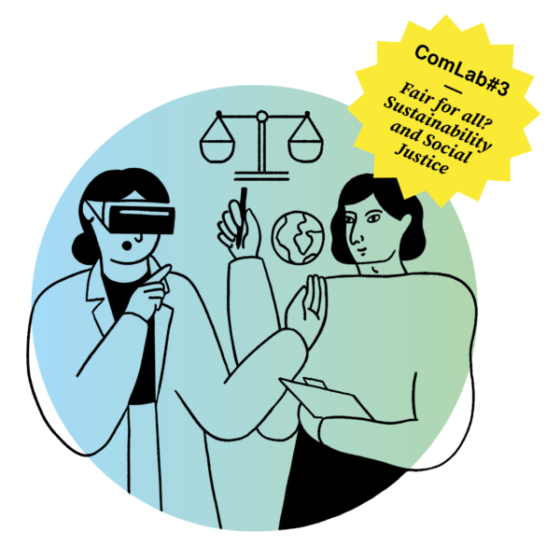
ComLab #3: Fair for all? Sustainability and Social Justice June 2021
Sustainable transformation also means social transformation. In the Agenda 2030, policy-makers worldwide defined important goals: the end of poverty and hunger in the world, access to quality education for all as well as the promotion of decent work and sustainable economic growth. Yet, how are the costs and benefits of sustainable development distributed at the local, regional and global level? What role do gender, social and ethnic background play in participation in sustainable development? And how can science and journalism help to communicate the complex social dimensions of sustainable transformation?
↗ more
ComLab #2 Climate Research and European Green Deal November 2020
No doubt, addressing climate change and taking political action to mitigate its consequences requires fast action. Scientific research plays a crucial role in investigating anthropogenic climate change and in developing mitigation policies and climate-friendly technologies. The second edition of the „Communication Lab for Exchange between Research and Media“ (24 – 26 November 2020) was therefore dedicated to the European Green Deal and questions of effective communication of climate change.
↗ more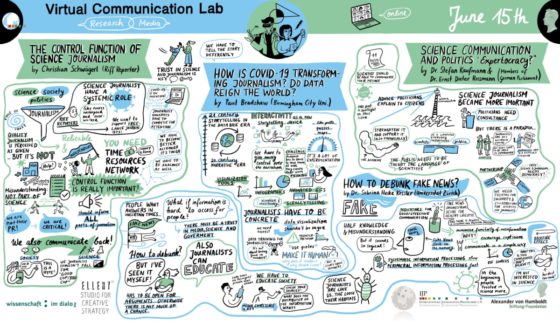
ComLab #1 Corona Pandemic June 2020
The importance and responsibility of science communication became clear during the global Corona pandemic: effective and well-researched journalism is essential to provide as many people as possible with access to and understanding of current research findings.
↗ moreComLab Bench Talks
Two people on a bench. Somewhere in Berlin. A researcher and a journalist discuss current world events and the state of science communication. A dialogue that offers a comparative view between different cultures and languages. An unscripted conversation of two professions that often hardly have the time to engage in an unplanned chat. Here, we take the luxury of “drifting” and “dwelling” in interdisciplinary space – which takes us to new perspectives for our global community.
In our newest episode macroecologist Brian McGill and science journalist Sahana Ghosh talk about the future of biodiversity and how better communication could be a game changer.
How can we predict the future of biodiversity? What are the challenges in analysing cause and effect in ecological studies? And is species decline directly linked to climate change? Brian McGill (University of Maine) and science journalist Sahana Ghosh (Nature India) get together in Berlin to talk about global data collection, attribution and how smart investments and better communication can help protect life on earth.
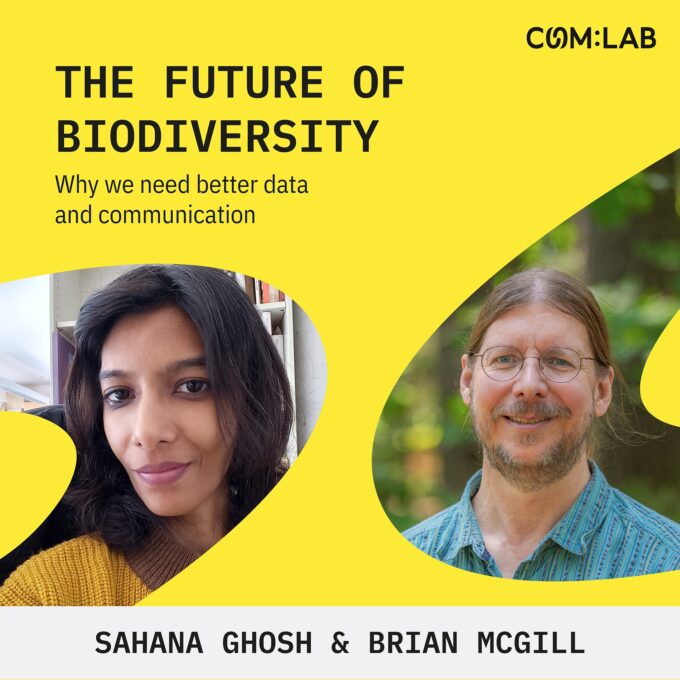
Previous Episodes:
Episode 2
In the second episode of Bench Talks, Daphnee Iglesias, former German Chancellor Fellow, UN Consultant, and specialist on data access and human rights protection, and Sarah Tekath, foreign correspondent on Women’s and LGBTQ rights, talk about the role of digitalisation in the global refugee crisis and the threat of gender-based violence and racism online. How exactly do technology and social media divide us? But how can they also help to create spaces of economic and social opportunity for women, and especially female refugees? Daphnee and Sarah share their professional and personal experience with gender discrimination.
Refugee crisis, digitalisation and the threat of gender-based violence online
Episode 1
In the first episode of Bench Talks, Albert Steinberger, journalist at Deutsche Welle Brasil, and Fabio Fornari, sustainability researcher and alumnus of the German Chancellor Fellowship, talk about misinformation and climate change, the role of science and media in the 2022 Brazilian presidential elections, and what “debate” means or can mean in the age of fake news and populism.
Climate communication, fake news and the Brazilian elections 2022
Supported by

In collaboration with


IJP alumni from all over Europe contribute their journalistic expertise by conducting interviews, writing reports, producing podcasts and video contributions and are thus available as important discussion partners. IJP alumni are also actively involved in the regular Humboldt Speeches on Europe with high-ranking speakers from politics and business, as well as the annual Europe Speech on November 9, and make an important contribution to knowledge transfer as multipliers.
Supported by
In collaboration with

